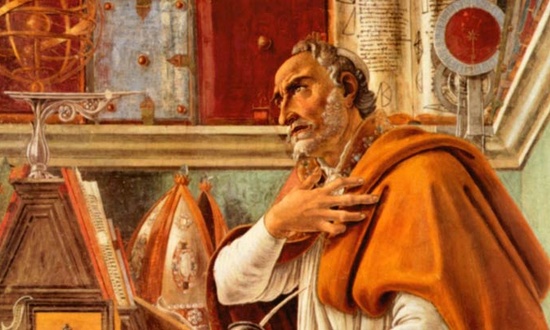Question from a reader:
What a pleasure it was for me to read Heaven by Randy Alcorn. On the whole, I thank the Lord that I had an opportunity to read this book. Now the Lord placed it on my heart to address some things that I totally objected to. Whoever reads this also has an obligation to be a Berean and see if they agree with my objections.
I am a former Roman Catholic. Let me make it clear, I love Roman Catholics. Most of my family and friends are still practicing Roman Catholicism despite of the numerous times my husband and I have witnessed to them.
Here are my objections: first of all, you quote a lot of different people’s remarks when it comes to the New Earth and all of them seem correct. My dissatisfaction was not from the quotes but from the people who quoted them.
You mentioned Father Boudreau on numerous pages of the book. Would you put a quote in your book by a Mormon, Muslim, etc.? To my amazement, I have had Christians say to me that they have relatives in the Catholic Church and believe they are saved. I tell them they can be saved as a Roman Catholic but if they truly understand the gospel they will not stay in the church.
You also quoted Teresa of Avila, an ordained saint of the Roman Catholic Church. Augustine and Aquinas were also mentioned. Pope John XXII proclaimed Thomas Aquinas a Doctor of the Church and saint in 1323. Aquinas believed in written Scripture and the traditions of the Catholic Church. He died in 1274 in a monastery.
Now to Augustine: he was a Catholic bishop. He was the Bishop of Hippo and in the Roman Catholic Church is recognized as a Doctor of the Church. He was born to a devoted Catholic mother and a non-believer father. The RC Church officially recognized him as a saint on 8/23…40 A.D.
The one thing that almost made me put down your book, was what I read under the heading “What will it be like to learn.” You were mentioning people we might have wonderful discussions with and the paragraph read: “HOW ABOUT DISCUSSING GOD’S ATTRIBUTES WITH STEPHEN CHARNOCK, A.W. PINK, A.W. TOZER, AND J.I. PACKER OR THEOLOGY WITH AUGUSTINE, AQUINAS, CALVIN AND LUTHER?” I don’t think I would have a problem with talking to Luther and some of the other fellows, but do you really think Augustine and Aquinas will be on the New Earth after the facts I shared with you?
Many people have said to me that only God knows their hearts and that is true. I am sure we will be surprised who we will see in Heaven and the ones we thought would be in Heaven but aren’t. But again, the Lord commands us to look at the fruit. These two individuals had no evidence of true saving faith.
I am in a bad dilemma with a loved one right now. After sharing with her how I was enjoying your book, she said she would love to read it. I know what she will think if she reads your book and sees how Roman Catholics will be on the New Earth. This book would only confirm to her that her “religion” is a true religion and a non-Catholic writer agrees with her.
Do I give her the book and black out the parts of the book I addressed? Or do I just tell her I don’t think the book is for her after reading the whole book?
If any weak or baby Christian (who was a former Roman Catholic) reads this book it would be dangerous, because they might feel like Roman Catholics don’t have to be witnessed to. I know the devil would love this, but to me, it would break my heart, because I love all people and wish they all would come to the wonderful truth that my husband and I came to years ago. I love you and all people, but I hope you will consider what I shared with you knowing it was sent with love.
Answer from Doreen Button, EPM staff:
Thank you for your well-thought-through letter. You are indeed imaging the Bereans in your desire to see and believe and live the truth of Scripture.
I help Randy respond to reader questions. Let me start with his response to your general concern about his use of certain quotes:
Over the years, I’ve been asked why I would quote from someone in my books or on social media when I don’t agree with them in every area. My response is that when I quote someone in a context of agreement, the only thing I’m saying is I agree with that statement, not all their other statements. Nor is my quoting someone a blanket endorsement of their lifestyle and choices in every area. Otherwise, there is no one I or anyone could quote from!
Of course, the question is where to draw the line. I’m aware that it’s not a good idea to always quote from anyone whose individual statement I technically agree with and appreciate. Even Hitler said a few things that I suppose I could agree with, but obviously I wouldn’t quote him. As John Piper puts it, “Everybody says true things from time to time—even the devil. But that doesn’t make them reliable teachers.”
And I need to further qualify the above statement, because sadly, as time has gone on, there are contemporary people I’ve quoted from who have since walked away from the faith or had gross moral failures, and therefore, I have chosen to remove their quotes from our website and my books. So my statement above shouldn’t be taken as a blanket endorsement for quoting just anyone. I do feel a weight of responsibility to be careful who I quote from, and don’t want to encourage readers to pursue learning from teachers or writers who don’t line up with sound teaching from Scripture.
But to my original point: for example, there are any number of areas in which I disagree with C. S. Lewis, but the quotes from him I put in my books are very insightful observations which I do agree with. Another example is Martin Luther, whom I respect and quote from even though he was anti-Semitic, and I deeply disagree with his view of Jewish people.
To be influenced by someone does not require that we endorse that person in all areas.
The first concern I encountered in your letter was the affiliation of Augustine with the Roman Catholic Church. There was only one church during Augustine’s life. It was not “Roman Catholic.” And though it was “catholic” in the sense of the word’s original meaning of “church universal” it did not look like it does today. Had he broken away from his church, he would have had no church to turn to.
Here are what some students of history and theology have written:
The theology of Augustine's time was still developing, and there were many different schools of thought within the Church. Augustine's own theology was influential in shaping many of the Church's teachings, particularly on issues such as original sin and grace.
Overall, the Catholic Church during Augustine's time was still in a state of development and growth, and many of the practices and beliefs that are central to the Church today were still being formulated and debated. [1]
Augustine, who was himself heavily influenced by the works of Virgil, Cicero, and Aristotle, also exerted an influence on secular philosophers, such as Kierkegaard and Nietzsche. Also, his works strongly affected the ideologies of such church figures as Thomas Aquinas and Bernard of Clairvaux. Later, Reformation leaders such as Martin Luther and John Calvin looked to Augustine for inspiration. Many modern Reformed theologians still look to him as a key source for their own writings. Much of Reformed doctrine, especially in relation to predestination, original sin, the bondage of the will, and efficacious grace, has been attributed to the work of Augustine.
Paradoxically, Roman Catholicism has also gleaned much from Augustine’s writings, so much so that he is sometimes called “the Father of Roman Catholicism.” His contributions to Catholic doctrine include the necessity of infant baptism, the perpetual virginity of Mary, and the real presence of Christ in the Eucharist. He was never officially canonized but was accepted as a saint early on by consensus. [2]
The audiobook I’ve been enjoying recently is Augustine’s Confessions, and I have been so surprised by how deeply he felt his sin and how totally he relied on Jesus for mercy and grace to save him. When he repented, he truly did move away from his sinful life and toward a life of following Jesus. No one can speak to another’s status regarding salvation since we can’t read minds or hearts. But we can see the fruit, as you mentioned.
Some fruit of Augustine’s life include “setting in stone” these important doctrines of our faith:
The idea of original sin, that Jesus died on the cross as a sacrifice to allow God to forgive mankind for the sin it inherited from Adam and Eve's disobedience to God in the Garden of Eden.
Redemption through faith alone. Augustine argued that good deeds etc. were no use at all (damning those like Pelagius who said they did) and that believing in God and worshipping him was alone and the only way to get to heaven. The Catholic church went back on this a bit but Luther revived it for protestants. [3]
Thomas Aquinas and Teresa of Avila are a bit more problematic as they are definitely products of their age. Yet when I read about their earnest devotion, it’s hard for me to believe that their faith in God was lacking even though their theology may not have been perfect (can any of us honestly say that we fully understand and live ours perfectly?). Teresa wrote this:
O my God, I amazed at the hardness of my heart amidst so many succours from Thee. I am filled with dread when I see how little I could do with myself, and how I was clogged, so that I could not resolve to give myself entirely to God. When I began to read [Augustine’s] Confessions, I thought I saw myself there described, and began to recommend myself greatly to this glorious Saint. When I came to his conversion, and read how he heard that voice in the garden, it seemed to me nothing less than that our Lord had uttered it for me: I felt so in my heart. I remained for some time lost in tears, in great inward affliction and distress. O my God, what a soul has to suffer because it has lost the liberty it had of being mistress over itself! and what torments it has to endure! I wonder now how I could live in torments so great: God be praised Who gave me life, so that I might escape from so fatal a death! I believe that my soul obtained great strength from His Divine Majesty, and that He must have heard my cry, and had compassion upon so many tears.
…A desire to spend more time with Him began to grow within me, and also to withdraw from the occasions of sin: for as soon as I had done so, I turned lovingly to His Majesty at once. [This sounds like a clear work of the Spirit in her life.] I understood clearly, as I thought, that I loved Him; but I did not understand, as I ought to have understood it, wherein the true love of God consists. I do not think I had yet perfectly disposed myself to seek His service when His Majesty turned towards me with His consolations… the only thing I prayed Him to give me was the grace never to offend Him, together with the forgiveness of my great sins…when He allowed me to stand before Him, and when He drew me into His presence; for I saw that, if He had not drawn me, I should not have come at all. [4]
It is good that you are careful about your faith. I encourage you to please be careful, though, about sitting in judgment about the faith of others. Only God knows the heart, and we are each responsible for the “light” we are given (not the light we are not given, or the light given—or not—to others—see Luke 12:48). While it is true that there is only one way to God—through Jesus Christ—each of us who claim to have faith in Him are on a journey of sanctification which is unique to us and is the responsibility of the one and only Holy Spirit. (Randy would be the first to tell you that he doesn’t get everything right despite all the study and prayer that go into his writing.)
And regarding your concerns about your loved one, we can’t know what someone is thinking, or what effect certain words might have on another person. We can’t know how the Spirit will move in another person’s heart through what they see, hear, and experience. We can only seek God’s wisdom through His Word, pray for those we love, and act according to the directions the Spirit breathes into us. Certainly, the gospel is clearly laid out in the book Heaven, and Randy is very careful to state that “There’s no righteous deed we can do that will earn us a place in Heaven (Titus 3:5). We come to Christ empty-handed. We can take no credit for salvation. …This gift cannot be worked for, earned, or achieved in any sense. It’s not dependent on our merit or effort but solely on Christ’s generous and sufficient sacrifice on our behalf.”
God loves you and your loved ones more than any human is capable of and is no doubt working in their hearts as you continue to pray for them. As Proverbs 3:5-6 states, “Trust Yahweh with all your heart and don’t lean on your own understanding. Acknowledge Him alone and always, and He will direct your path.” God bless you on your journey in God’s eternal Kingdom, toward that wonderful reunion with your Lord, on the New Earth.



